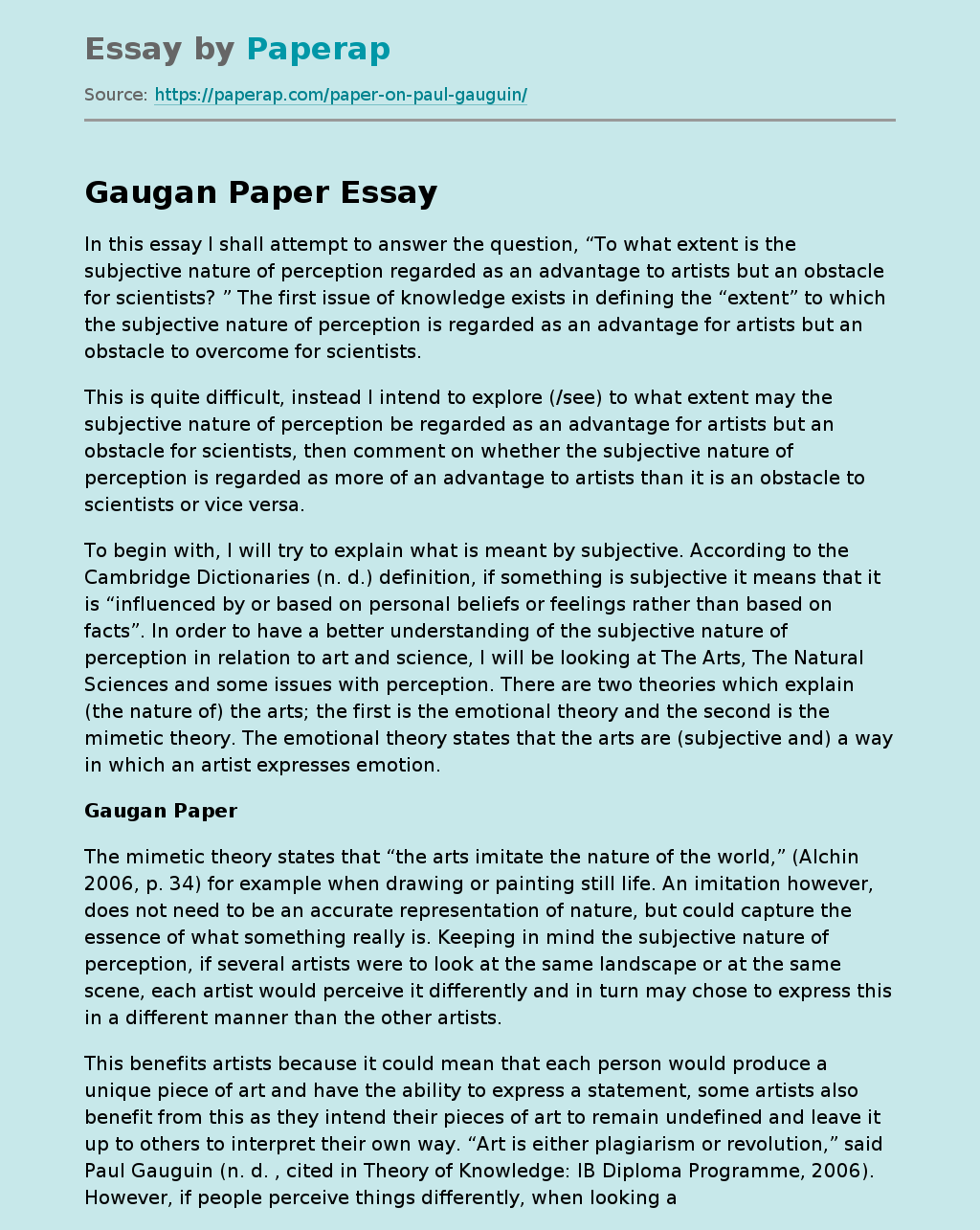An Advantage for Artists and an Obstacle for Scientists
In this essay I shall attempt to answer the question, “To what extent is the subjective nature of perception regarded as an advantage to artists but an obstacle for scientists? ” The first issue of knowledge exists in defining the “extent” to which the subjective nature of perception is regarded as an advantage for artists but an obstacle to overcome for scientists.
This is quite difficult, instead I intend to explore (/see) to what extent may the subjective nature of perception be regarded as an advantage for artists but an obstacle for scientists, then comment on whether the subjective nature of perception is regarded as more of an advantage to artists than it is an obstacle to scientists or vice versa.
To begin with, I will try to explain what is meant by subjective. According to the Cambridge Dictionaries (n. d.) definition, if something is subjective it means that it is “influenced by or based on personal beliefs or feelings rather than based on facts”.
In order to have a better understanding of the subjective nature of perception in relation to art and science, I will be looking at The Arts, The Natural Sciences and some issues with perception. There are two theories which explain (the nature of) the arts; the first is the emotional theory and the second is the mimetic theory. The emotional theory states that the arts are (subjective and) a way in which an artist expresses emotion.
Gaugan Paper
The mimetic theory states that “the arts imitate the nature of the world,” (Alchin 2006, p.
34) for example when drawing or painting still life. An imitation however, does not need to be an accurate representation of nature, but could capture the essence of what something really is. Keeping in mind the subjective nature of perception, if several artists were to look at the same landscape or at the same scene, each artist would perceive it differently and in turn may chose to express this in a different manner than the other artists.
This benefits artists because it could mean that each person would produce a unique piece of art and have the ability to express a statement, some artists also benefit from this as they intend their pieces of art to remain undefined and leave it up to others to interpret their own way. “Art is either plagiarism or revolution,” said Paul Gauguin (n. d. , cited in Theory of Knowledge: IB Diploma Programme, 2006). However, if people perceive things differently, when looking at a piece of art they might interpret it differently from the way that the artist meant for it to be perceived as.
This poses a difficulty in the communication of a statement that the artist wishes to express with the artistic piece. For example, in one of my English classes, there was a class discussion on whether poetry was meant for enjoyment or analysis. We came to a conclusion that like other forms of art poetry is aesthetic and it can be analyzed in various ways, we might not know the thoughts of the poet or what the poet meant exactly when he or she wrote the poem.
One reason for why people might interpret art in a different way than others or from the way artist meant for it to be understood, is that people come from different cultures and have inherited different prejudices. Inherited prejudices and the culture that a person grows up around affect the way he or she perceives the world. For example; I remember reading (a fictional) a book by Louis Lowry entitled “The Giver”. In the book the people of the community know nothing of the way past generations had lived before their community existed.
An Advantage for Artists and an Obstacle for Scientists. (2019, Dec 05). Retrieved from https://paperap.com/paper-on-paul-gauguin/

